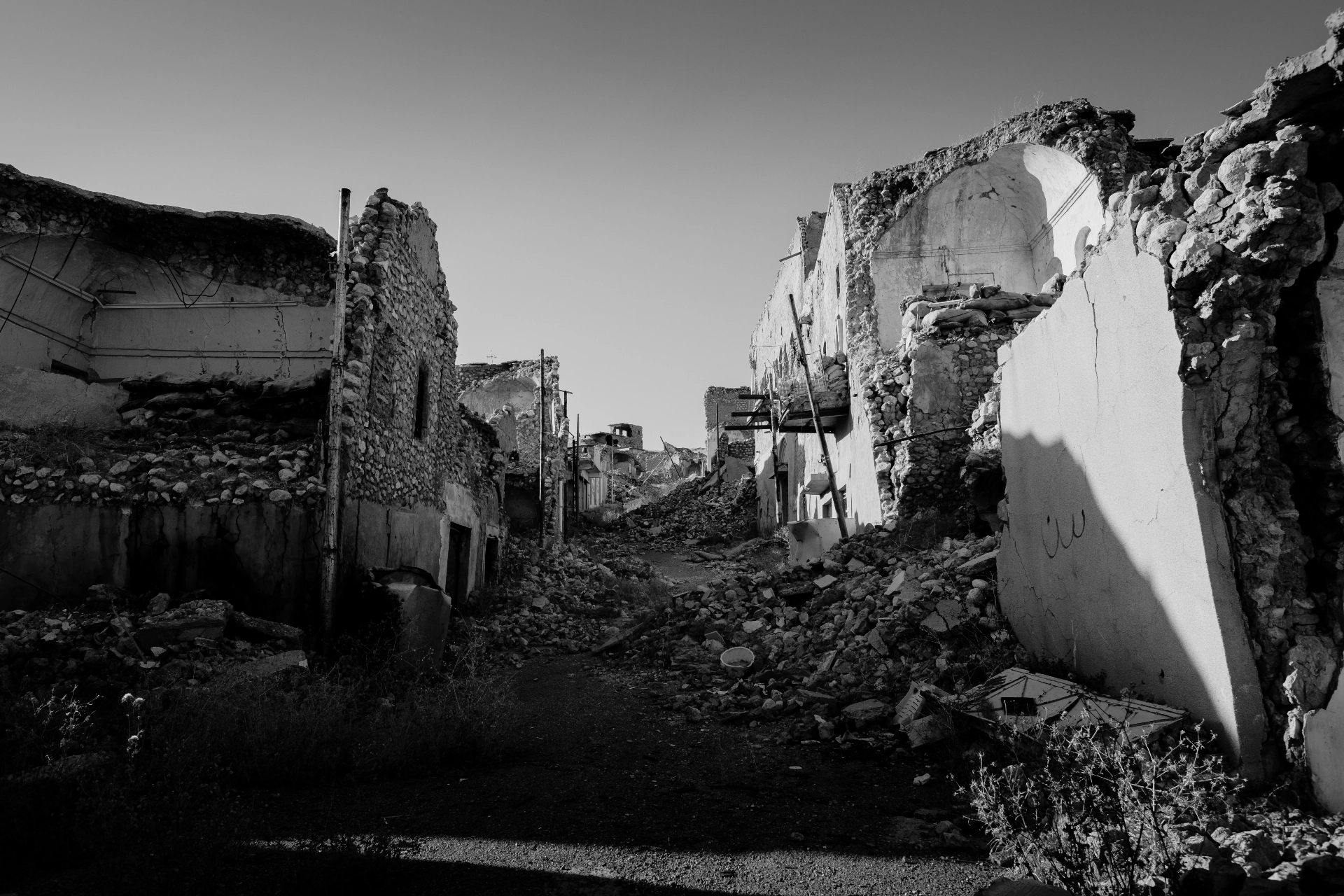SDG 16 is in danger!
Despite all efforts on disarmament, the entire global arsenal of weapons is sufficient to make the Earth an uninhabitable planet several times over. Almost every country has its defence budget, thereby acquiring destructive and deadly weapons, whether for defence or a war of aggression.
But weapons are not just weapons.
 There are red lines; namely there where the target of the weapons is not simply the enemy’s military, but where civilian casualties are hit on a large scale.
There are red lines; namely there where the target of the weapons is not simply the enemy’s military, but where civilian casualties are hit on a large scale.
Landmines, for example, are so perfidious because they continue to mutilate innocent victims, usually children playing, for decades following wars.
Biological and chemical weapons kill soldiers and civilians without distinction.
Nuclear weapons render entire regions uninhabitable for years, if not centuries.
The damage caused by these weapons systems is disproportionate to the supposed benefits. Their use renders post-war reconciliation difficult or even impossible so that the UN’s Sustainable Development Goal (SDG) 16 "Peace, Justice and Strong Institutions" moves into the unattainable distance.
The Case "World versus Weapons"
The global community has repeatedly come together under the auspices of the UN to ban certain types of weapons. It began with the Nuclear Non-Proliferation Treaty of 1968, according to which the signatory countries, apart from the five official nuclear powers, committed themselves to renounce nuclear weapons.
It was followed in 1972 by the Biological Weapons Convention. Chemical weapons were outlawed in 1997. In 1999 land mines were up to be banned and the Convention on Cluster Munitions was passed in 2008.
At this point, however, it should be mentioned that neither the USA nor Russia signed the last two treaties. Neither country has ratified the UN Arms Trade Treaty of 2014. The aim of this Convention was to establish common international standards for the import, export, and transfer of conventional weapons.
Financial centres like Switzerland are acting
Many states, including Switzerland and Luxembourg, have incorporated these internationally binding treaties into national law. This is significant because both countries are also domiciles for a substantial volume of investment funds.
The Swiss Federal Act on War Material, which was adopted in 1996 and renewed in 2013, regulates the arms trade in accordance with the UN treaty. It also explicitly prohibits the financing of weapon systems that were outlawed in the above-mentioned conventions. However, trading in and owning shares in manufacturers of controversial weapons are only a criminal offence if it is to evade sanctions.
Sustainable investors aim to avoid damage
Despite this, most asset managers often go beyond the letter of the law. It is not least to avoid reputational damage, which the financing of war material entails if it is disclosed by a non-governmental organization (NGO).
For sustainable investors, the do-no-harm principle is imperative. Norms-based exclusion criteria, i.e. exclusion criteria motivated by international law, are the lowest common denominator on which all sustainable investors can agree. The exclusion of controversial weapons is, therefore, part of "minimum hygiene".
For radicant, which is committed to promoting the 17 UN Sustainable Development Goals, the categorical exclusion of controversial weapons is a self-evident fact and just one of many exclusion criteria.